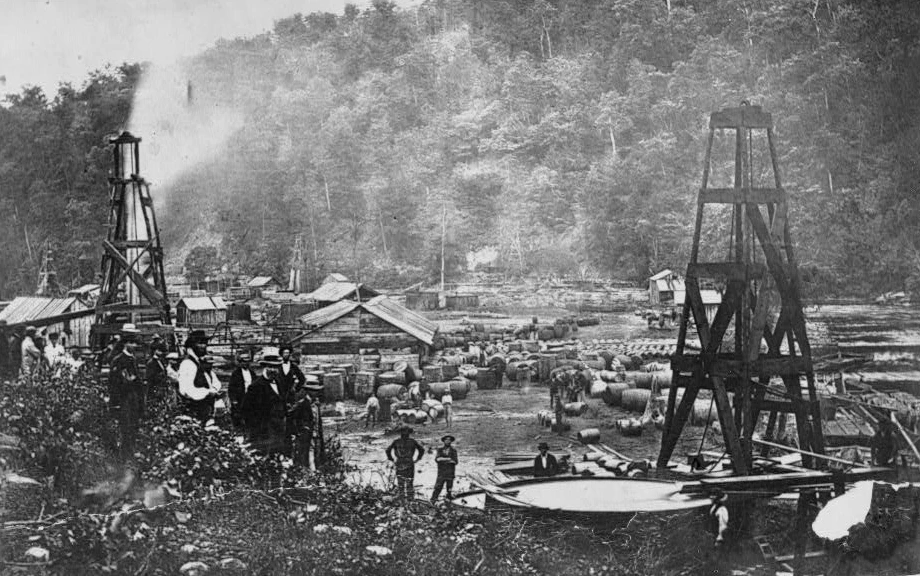TL;DR: Tensions were rising across Pennsylvania’s oil-producing counties in 1869 as debate intensified over the controversial “Free Pipe Bill.” This editorial response from Titusville resident J. H. Slipper takes direct aim at Crawford County Judge E. H. Chase’s public defense of Representative Ames, who opposed the bill. At stake was the right of multiple companies to build and operate oil pipelines, versus legislation favoring monopolistic control by a single corporation. Slipper’s letter champions competition and transparency, rebuking monopolies as a threat to progress and the public good.
Reply to Judge Chase
The Titusville Morning Herald, May 8, 1869

Titusville, May 7, 1869
Editors Morning Herald:
An article signed E. H. Chase appeared in your columns this morning, which contains a number of errors, expressed and implied, which may mislead the public. I am not a member of that influential body, the Producers’ Association, but I do sympathize most heartily with them in their earnest opposition to unjust and illiberal legislation. I take as much pride in the growth, progress, and increasing wealth of Crawford County as the gentleman who signed the article; but I do not believe in sectional as opposed to the general good.

The Issue: Competition vs. Monopoly
The aim of his article is to divert public attention by side issues from the main question, which is: Did Mr. Frederick W. Ames truly represent the interest of the people of Crawford County in opposing, voting against, and defeating the Free Pipe Bill? In other words, are the people in favor of special or general legislation?
“The greatest good for the greatest number” is the popular motto now. Had the proposed act relative to corporations for mechanical, manufacturing, mining, and quarrying purposes (approved July 18, 1868, and which formed the basis of the “Free Pipe Bill”) been passed, an unlimited number of companies could have been formed to lay pipes for the transportation of oil, thus enabling every producing district to have as many transportation companies as the producing business would warrant. Here we have competition opposed to monopoly.
The companies formed under the proposed law would not have the right to purchase, manufacture, and transport oil exclusively, as Mr. Chase asserts. Here is the rub: The bill Mr. Ames advocated and engineered through the Legislature gave all the above rights to a single corporation. He worked to defeat a law which had passed the House (to which he belonged), enabling an unlimited number of companies to transport oil alone by means of pipes.
Not a member or a Senator from the four counties of Crawford, Warren, Venango, or Erie—except Mr. Ames—refused to support the Free Pipe Bill.

Refuting Chase’s Assertions
Where does Mr. Chase get his information that Mr. Duncan of Venango, and Mr. Clark of Warren had no objection to the Western Oil & Pipe bill? The “record” does not show it. “When the name of Mr. Clark”—”Warren,” I quote from record—”was called, he said, ‘I have no objection to taking up this bill,” (referring to the Western Oil and Pipe bill), “but I am opposed to the suspension of the orders generally.” Mr. Duncan acquiesced in the same reason. Nor is Mr. Chase’s logic any more exact than his statements. He says: “There were close corporations before this corporation.” “There were monopolies before this monopoly!”
Allow me to ask the astute Judge whether in his court a motion to quash the indictment against a murderer would prevail because other murders have been committed? Would Mr. Chase sign a recommendation to the Governor to pardon a notorious burglar because other burglaries have been committed? Evil having existed hitherto must they be longer endured? The argument of Mr. Chase is plausible at the best he can bring forward, so I will not put it.
Mr. Chase says of Mr. Ames’ constituents: “They are reading constituents and understand as they go along.” I merely wish to place before them the plain statement of the question at issue, unattended with wordy assertions and predictions of what will happen on the 25th of June.
Very respectfully yours,
J. H. Slipper
